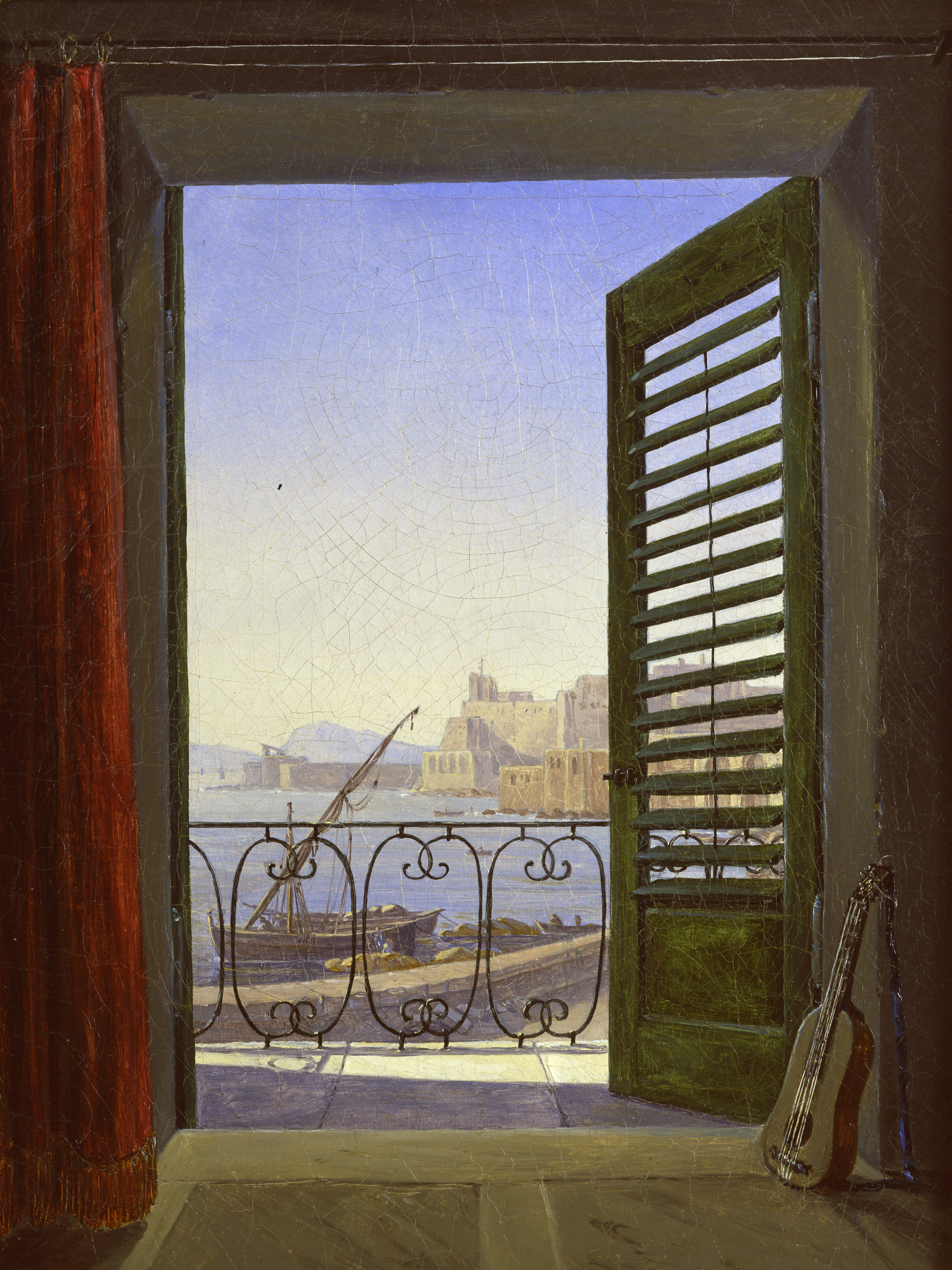Carl Gustav Carus
balcony in Naples, around 1829/30
Artist
Carl Gustav Carus
Title
Balcony in Naples
Year of creation
around 1829/30
Technique and dimensions
oil on canvas, 28.4 x 21.3 cm
Year of acquisition
1992
During his stays in Italy, the doctor, naturalist, philosopher and artist Carl Gustav Carus enjoyed the beauties of the south with its "entire fairy appearance of sea and fire mountains, lemon and orange forests, waves of dust and people." He perceived light, colors and landscape with the painter's eyes, and at the same time he conducted scientific studies of the fauna, flora and geology of the region. This complexity of perception and view lay a basic motive of his striving.
The second trip to Italy, which Carus undertook in 1828 as a companion of Prince Friedrich August of Saxony, took him to Naples on May 4th of the same year. He had entered his quarters in the Casino Reale on the Via Chiatamone with joyful impatience: "An old, richly dressed German steward leads everyone into the prepared rooms. I awaited my fate with no small amount of excitement! Finally he escorted me upstairs, I enter, and Before me lies Vesuvius, sea, castle and blue distance - I poured myself into gratitude to God, who not only guided me graciously to my destination, but also honored me in such a cell!" And the next morning he noted: "Happy morning hour! I drank the fresh sea air and the serene light of the sky to the fullest, watching the waves foam over the rocks under my window!"
With bright color tones, Carus captured the impressions of his stay in Naples in this painting. In 1830 it was exhibited in Dresden as a “Memory of Naples”. The room offers a view of the harbor bay with boats and the Castell D'Ovo, which is golden in the afternoon light. The bluish silhouette of the island of Capri appears on the horizon. There is silence in the shady interior. The only visible object is a guitar leaning against the door frame of the balcony room. It refers to the song of the fishermen that can be heard in the harbor in the evening. With the view from the window, Carus resorted to a romantic motif of longing: the objective, tangible world of the foreground is juxtaposed with the view into the distance, into the vastness.
Birgit Verwiebe
